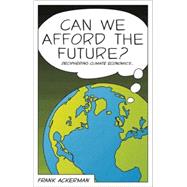
Note: Supplemental materials are not guaranteed with Rental or Used book purchases.
Purchase Benefits
Looking to rent a book? Rent Can We Afford the Future? The Economics of a Warming World [ISBN: 9781848130388] for the semester, quarter, and short term or search our site for other textbooks by Ackerman, Frank. Renting a textbook can save you up to 90% from the cost of buying.
| Time to think again | |
| The new aid era | |
| All aid's impacts: The bigger picture | |
| Pulling the strings: The reality of aid conditionality | |
| Institutions, institutions, institutions | |
| Aid, growth and confused academics | |
| A better future? | |
| Why is aid really going up? | |
| What is to be done? | |
| Notes | |
| Bibliography | |
| Index | |
| Table of Contents provided by Publisher. All Rights Reserved. |
The New copy of this book will include any supplemental materials advertised. Please check the title of the book to determine if it should include any access cards, study guides, lab manuals, CDs, etc.
The Used, Rental and eBook copies of this book are not guaranteed to include any supplemental materials. Typically, only the book itself is included. This is true even if the title states it includes any access cards, study guides, lab manuals, CDs, etc.